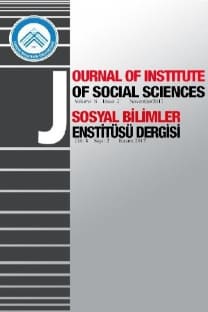Emecheta’nın Second Class Citizen Romanında Siyahiliğin Ve Kadınlığın Çilesi
Önceden sömürgeleştirilmiş bir çok yazar bağımsızlık sonrası kendi milletleri ile ilgili yazılanlara baş kaldırıp onları yeniden oluşturarak “merkeze doğru yazmaktadır.” Nijerya doğumlu İngiliz yazar Buchi Emecheta bunlardan biridir. Emecheta’nın Second Class Citizen (İkinci Sınıf Vatandaş) romanı; Adah etrafında döner. Baş kahraman zorlu yaşamına, doğduğu ataerkil Igbo kültürüne karşı mücadele ederek başlar. Daha sonra ise ataerkilliği temsil eden kocası Francis ile gittiği Londra’da ırksal ayrımcılıkla karşılaşır; böylece; kahramanın mücadelesi hem siyahi hem de kadın olarak Londra’da ikiye katlanır. Eserde, Emecheta sömürgeci toplumda siyahi bir anne olarak sonunda kendi ayakları üzerinde durmayı başaran Adah karakteriyle kendi yaşamının bir portresini çizer. Yazar, siyahi erkekler ve sömürgeci toplum tarafından atfedilen ikinci sınıf konumundan sıyrılmayı başaran baş kahramanla siyahi kadınlara çıkış yolu sunar. Ayrıca, sömürgeci yazarlar tarafından kendi toplumuyla ilgili bırakılan boşlukları doldurur. Nijerya halkının dini, dili ve yaşam tarzıyla sömürgeciler tarafından yok edilen bir kültürü olduğunu da bildirir. Bu çalışmanın amacı; Emecheta’nın Second Class Citizen’la ırk ve toplumsal cinsiyet ayrımcılığının üstesinden gelmeyi başaran siyahi bir kadın modeli oluşturarak sömürgeci eserlere karşılık yazdığını göstermektir.
The Ordeal Of Blackness And Womanhood In Emecheta’s Second Class Citizen
Many former-colonised authors “write back to the centre” following decolonisation by challenging and remodelling the texts about their nations. The Nigeria-born British author Buchi Emecheta is one of them. Emecheta’s Second Class Citizen revolves around Adah. The protagonist starts her ardous life by struggling against the patriarchal Igbo culture she is born into. Then, she encounters the racial discrimination in London where she accompanies with her husband, Francis, who represents patriarchy; thus, her ordeal is doubled as being both black and a woman in London. In the novel, Emecheta draws a portrayal of her own life by means of Adah who achieves standing upon her feet as a black mother in the colonial society at last. She provides a way out for black women by means of the protagonist who manages to elude from the second-class position attributed to them by black men and the colonial society. Moreover, the author fills in the blanks left by colonialist authors. She also informs about the Nigerian people who had a culture with their religion, language and life style destroyed by colonisers. Thus, the purpose of the study is to indicate how Emecheta abrogates and reapproriates in her autobiographical novel Second Class Citizen.
Keywords:
Buchi Emecheta, Second Class Citizen, Abrogation Reappropriation,
___
- Boss, Joyce. (1988). “Women and Empowerment: ‘An Interview with Buchi Emecheta’”, A Journal of African Studies, 16(2), pp: 93-100.
- Emecheta, Buchi. (1989). Second Class Citizen. 1974. Great Britain: Hodder and Stoughton.
- Hooks, Bell. (1984). Feminist Theory: From Margin to Center. Boston: South End Press.
- “How Do You Practice Intersectionalism? An Interview with Bell Hooks”, Common Struggle, 15 March 2012. 13 Apr. 2015, (http://www.commonstruggle.org, 13 Apr. 2015).
- Ola, Virginia U. (1987). “Art and Propaganda in Buchi Emecheta’s Second Class Citizen”, UTAFITI, 9(1), 135-147.
- ISSN: 1309-3738
- Yayın Aralığı: Yılda 2 Sayı
- Başlangıç: 2010
- Yayıncı: Prof. Dr. Coşkun POLAT
Sayıdaki Diğer Makaleler
Kant Epistemolojisinde Bilgi, Varsayım ve İnanç Sorunu
İ. Burcu TOPRAK, Nafel DOĞDU, Mehmet ÖZTÜRK
Türkiye’deki Enflasyon Ve Dolar Kuru Volatilitesinin BIST-100 Endeksi Oynaklığı Üzerindeki Etkisi
Ortaokul 5. Ve 6. Sınıf Öğrencilerinin Öğrenme Stilleri ile Ders Çalışma Yöntemlerinin İncelenmesi
Tek Elli Piyanist: Nicholas McCarthy
Kadın Yoksulluğuyla Mücadelede Mikro Kredinin Etkisi Ve Niğde İli Örneği
Filiz KUTLUAY TUTAR, Cemile ALPASLAN
Emecheta’nın Second Class Citizen Romanında Siyahiliğin Ve Kadınlığın Çilesi
Çok Partili Hayata Girilirken Halkın Cumhuriyet Halk Partisi’nden Kopuşuna Dair Bir Rapor
